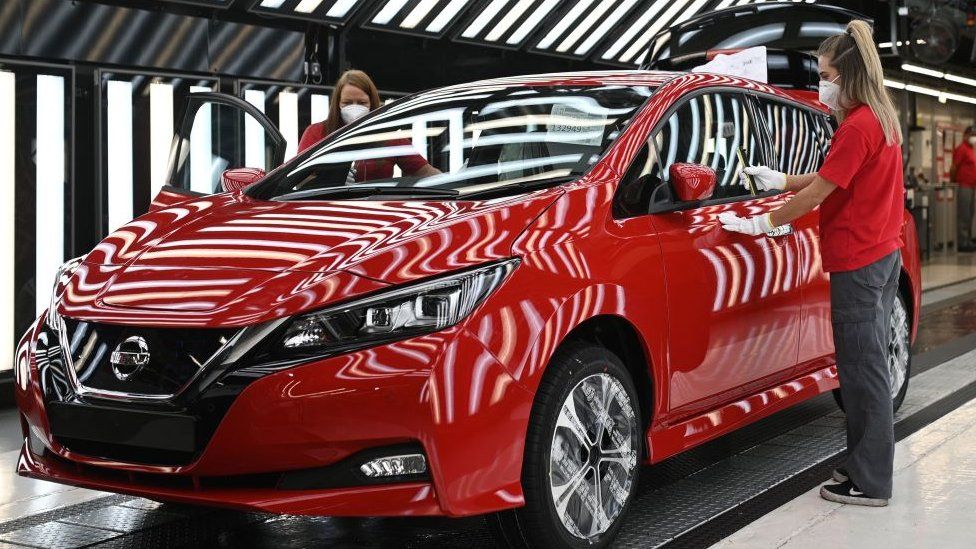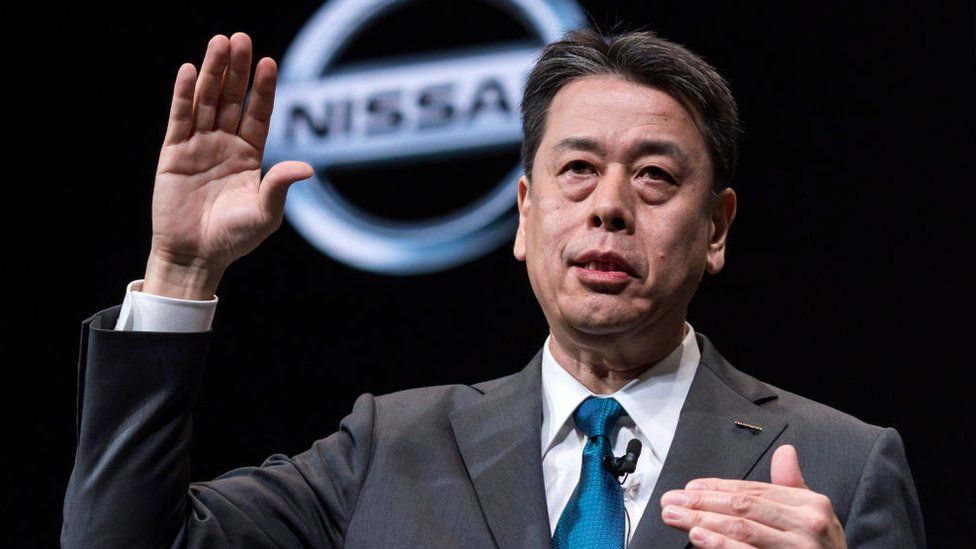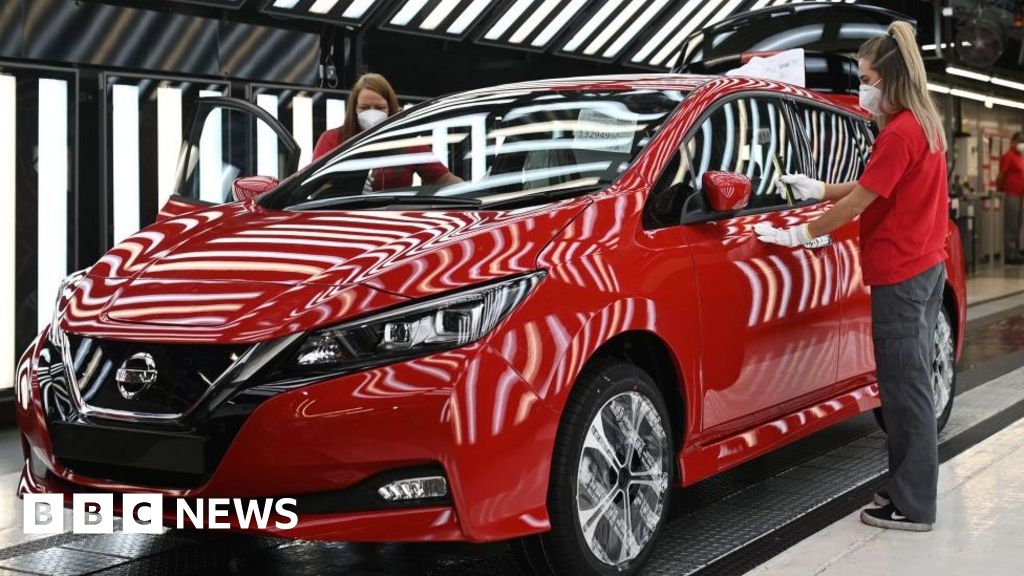
Getty Images
The Omicron variant could add pressure to a chronic shortage of microchips used in car manufacturing, the boss of car giant Nissan has warned.
Makoto Uchida said it was too early to say when normal deliveries, and therefore finished cars, would resume.
“I can’t give you a date. This new variant could add pressure to that, so how well we react is going to be crucial,” he told the BBC.
Products from cars, washing machines and smartphones rely on computer chips.
Some factories had to close when the pandemic first struck in 2020, leading to a backlog in production in microchips, also known as semiconductors.
The impact was exacerbated by soaring demand, with people working from home needing laptops, tablets and webcams to help them do their jobs.
“We have a semiconductor shortage as an industry and how we recover from that is critical,” Mr Uchida told the BBC.
Japan has banned incoming flights from abroad in response to the international alarm over the omicron variant first detected in South Africa.
Mr Uchida’s comments come as Nissan announced its vehicle electrification strategy, which includes the proposed introduction of 23 electrified models by 2030, and the ambition that by 2026, 75% of the companies European sales will be electric vehicles.
Earlier this year, Nissan announced a £1bn investment to turn its Sunderland plant in the UK into a hub for electric vehicle production.

Getty Images
Its targets for China and the US are much less ambitious. Nissan hopes that 40% of the cars it sells in China will be electric or hybrid by 2026, while it only expects to hit that same proportion in the US by 2030 given slower consumer take-up.
The company did not set a target date for the elimination of combustion engines. At the recent COP26 climate summit, Nissan, along with Toyota, VW and BMW, refused to join Ford and Volvo in signing a pledge to phase them out by 2040.
Nissan is also investing more money in developing solid state batteries, which the industry hopes will ultimately prove more efficient than the current industry standard lithium-ion batteries.
Mr Uchida said Nissan remained committed to its alliance with Renault and Mitsubishi, which was the brainchild of former Nissan boss Carlos Ghosn who is now living in exile in Beirut having been smuggled out of Japan while awaiting criminal prosecution on charges of financial crime. Mr Ghosn strenuously denies the charges.
